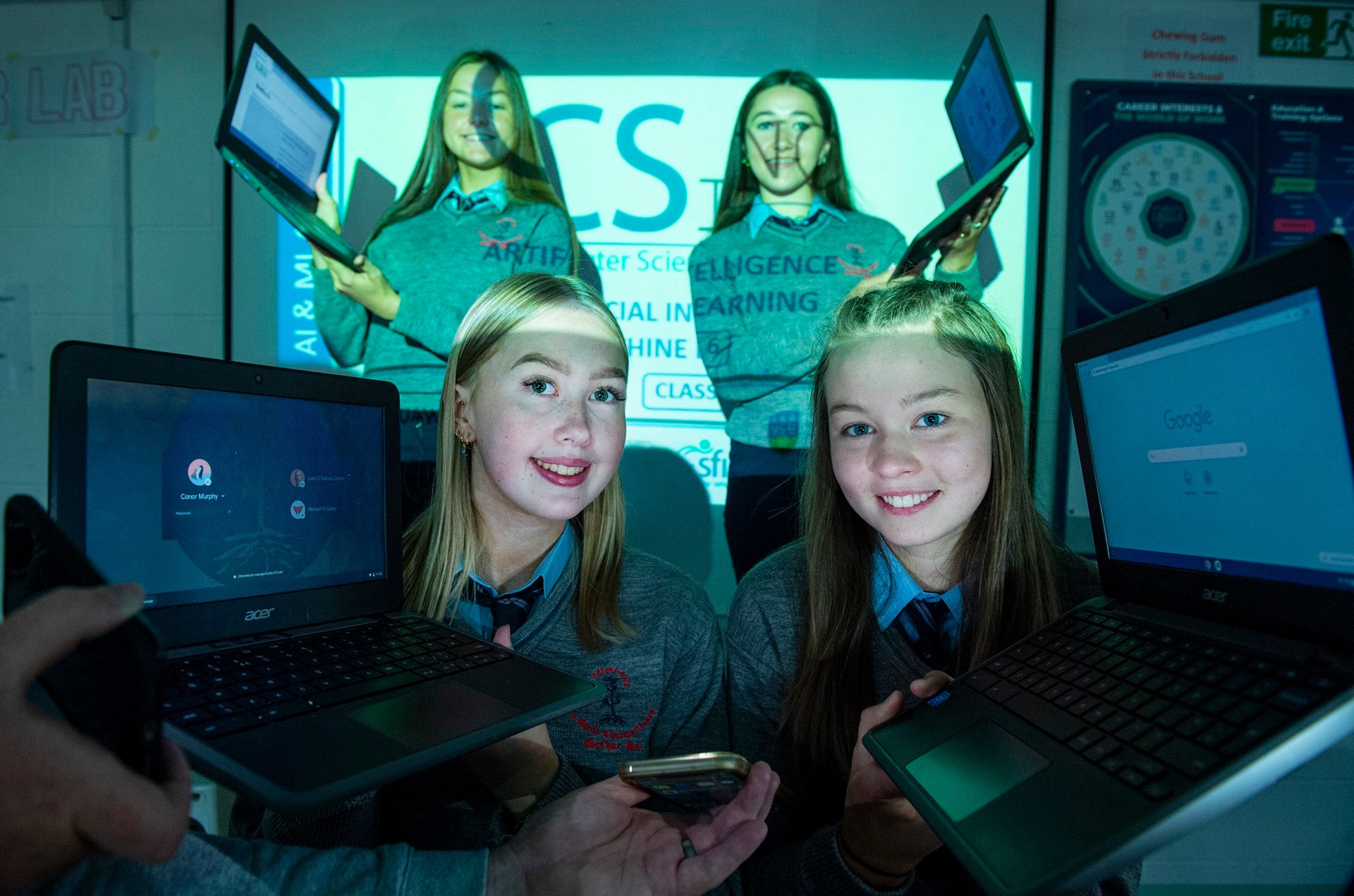Hugely successful AI programme for 8,000 secondary students in over 100 schools to be expanded next year

4 June 2022: A successful pilot programme that has seen over 8,000 students in over 100 secondary schools across Ireland learn about machine learning (ML) and artificial intelligence (AI) is set to be expanded in the coming school year.
The pilot programme, which was rolled out to schools right across the country in Dublin, Cork, Galway and Kildare, is the first of its kind and has been marked as a huge success after its debut year. Students experienced a full immersive experience into the technologies that are giving the world self-driving cars, manufacturing robots, and they learned about the jobs of the future.
With the support of Huawei Ireland, the programme was developed by Science Foundation Ireland Centre for Research Training in Machine Learning (ML-Labs) based in UCD and Technological University Dublin. The programme was delivered via CSinc, a national research group based in TU Dublin and has ambitions to be rolled out again for the academic year 2022/2023 via the online learning platform CSLINC.
Speaking about the programme, Vera Leader, Principal of Boherbue Comprehensive School in Cork, which saw 25 transition year students take part in the programme this year, said: “Our school is in a rural area so computers and engineering are high on the local agenda – but this programme has opened our students’ eyes even more to the possibilities for artificial intelligence and machine learning. It has also challenged students in their thinking about what to study in 5th and 6th year and whether they should consider studying STEM subjects in college – this wouldn’t have happened without the programme. The structure of the programme meant that it was designed with both students and teachers in mind – so it has been very progressive and we look forward to offering the programme to students again next year.”
Michael Moynihan, TD for Cork North-West, said: “This course’s approach has helped students gain great insight into how AI actually works, to demystify and remove barriers to more advanced learning, and to emphasize the important roles of ethics and bias in AI. I’m delighted the Boherbue students have got such value from the module and I applaud Huawei Ireland and ML-Lab’s work in this area and intention to expand the course in the coming school year.”
The module contains lesson plans, presentations, videos, classwork, homework and solutions for teachers. In addition, code and accompanying instructional materials are provided, to introduce various machine learning algorithms if the teacher desires a more technical approach, with minimal setup, no specific software requirements, and no cost to participate. Classes can be adapted by teachers to support diverse student groups, and the course authors recognize that for some students this might be their first-time exploring issues relating to algorithms and data. Students who successfully complete the course receive a Certificate of Completion from the TU Dublin research group.
Speaking about doing the course in Boherbue, transition year student, Charlotte Murphy, said: “This programme has been a great experience for me, and didn’t require any previous knowledge of coding so allowed me to get a grasp of the basics of AI and machine learning very quickly. It gave me a fresh perspective on the digital area and the relevance of STEM courses to the future world of technology. The insights and experience gained during the programme were invaluable.”
Speaking about the expansion of the programme, Luke McDonnell, Head of PR for Huawei Ireland, said: “Artificial intelligence and machine learning have long captured our attention in science fiction stories, but many of the things that we have previously imagined are now a reality - cars that drive themselves, robots that help us at home, and computer programmes that can create images, text and video. The module has been specifically and carefully designed and developed with a TY audience in mind which had made it very accessible. The success of the programme demonstrates the great things that can be achieved when industry and academia collaborate together. It is our hope that this progressive programme will help to pave the way for AI and ML to be delivered in secondary schools across Ireland in the coming years.”
